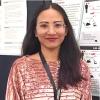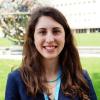Understanding the mechanisms of pathogenesis caused by bacteria, viruses and parasites plays a key role in understanding infectious diseases.
Pathogenesis – literally how disease (pathos) begins (genesis) or develops –- is a broad, important area of research encompassing both basic and clinical sciences. In infectious diseases, pathogenesis commonly occurs as a consequence of complex interactions between an infecting pathogen and the immune system. In order to understand how a particular pathogen causes disease it is critical to determine how host immunity (including both the innate and acquired arms of the immune system) resists infections. Our researchers here at Cambridge are working advancing our understanding of the interactions between resident and invasive microbes and the immune system and the implications of these findings for human and animal health.
Explore Campus
Immunity and infection research is closely intertwined at the University, and includes a number of research groups and programmes studying host-pathogen interactions:
- The immunity, infection and inflammation theme of the Cambridge Biomedical Research Centre
- Virology and Immunology research groups in the Department of Pathology
- The Wellcome Trust of the four year PhD Programme in Infection and Immunity, and the continued funding of PhD studentships by the MRC and BBSRC.
- The Cambridge Immunology acts as a network of immunology researchers in and around the city.


























































































